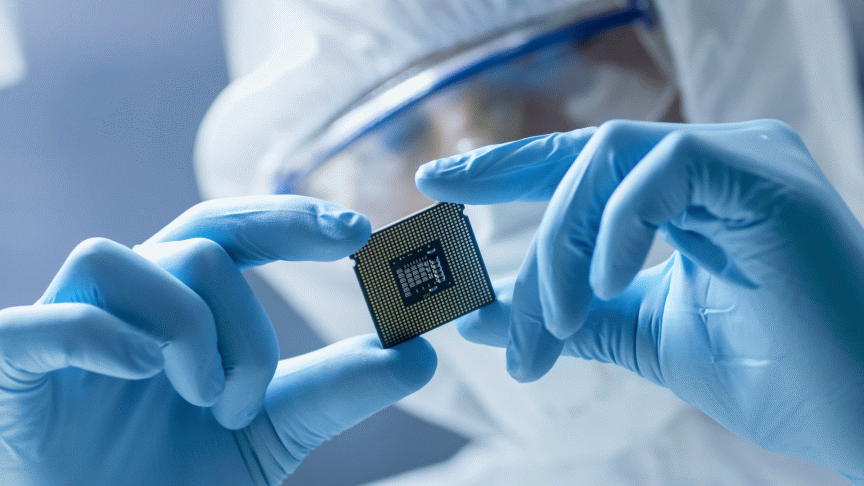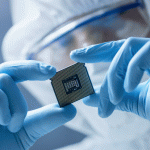Swiss tech startup Unisers raises $14 million to develop tools to detect defects in chip production

Microchips are all around us — in our smartphones, TVs, and in virtually most of the appliances we use today. However, microchip production is one of the most complex and time-consuming processes in manufacturing in the world.
Today, a single microchip contains up to 20 billion transistors. As such, there is no room for errors. However, silicon wafers used in the manufacturing of microchips and chips in electronic devices are known to have defects. A tiny particle that lands on a silicon wafer can cause a chip to malfunction. But the problem may not be discovered until months later, at the end of a production process of thousands of steps.
So detecting these particles early after they contaminate wafers saves money. As microchips perform faster and their circuitry gets tinier, particles of ever smaller dimensions become a major problem. It’s for this reason that Switzerland-based microchip toolmaker startup Unisers is on a mission to develop technology to help chip fabrication customers detect defects in their chip production.
Unisers is developing defect-detecting tools that can tell the source of yield-killer particles on silicon wafers. This technology helps the fab operator to take corrective action in the shortest possible time with the highest confidence level. Unisers’ technology is also aimed at detecting impurities in materials, which is another source of defects.
Today, Unisers announced it has raised $14 million in a funding round led by Intel Capital, with participation from M Ventures, Swisscom Ventures, and RSBG Ventures. During its early stages, Unisers also received awards, grants, and business coaching support from Gebert Ruef Foundation, Venture Kick (First round), Climate KIC, the Innosuisse Core Coaching Program, and private investors.
Unisers will use the funding proceeds to build new-technology demonstrator machines for trials by major chip-fabrication customers. Unisers CEO and co-founder said the new machines would offer a new level of performance in the difficult task of detecting extraneous extremely small particles that ruin chips in production.
“We are the only company which can detect these extremely small, small, smaller than 10 nanometer particles on wafer,” Altun told Reuters.
Unisers was founded on April 11, 2019, as a spin-off of ETH Zurich by Ali Altun (Ph.D.) and Timo Schneider. Before its founding, Unisers CEO Dr. Altun had received the Pioneer Fellowship Grant from ETH Foundation that includes a special entrepreneurship education program organized by the Innovation and Entrepreneurship Lab of ETH Zurich.

